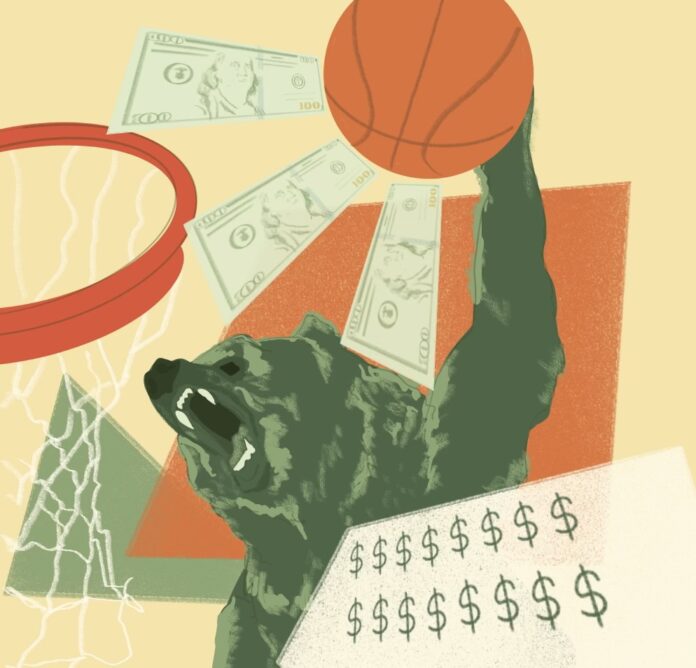By The Editorial Board
It’s one of the best times of the year: the NFL playoffs. While your feet are up as you watch the AFC and NFC championships this weekend, six different commercials promoting a variety of sportsbooks — in-person or virtual places to make sports bets — will surely pop up on your screen. In fact, 12% of the ads played during each football game are tailored straight to the college audience, waiting for a bite from the most vulnerable crowd.
In May 2023, the NCAA addressed sports gambling by informing universities that, in a survey it filed, 58% of 18- to 22-year-olds actively engaged in sports betting. Flash forward to a new year, and the exponential growth of the sports gambling world — mixed with new data showing three out of four college students have gambled in the past year alone — has colleges worried about the impact.
TIME Magazine broke down the trend by highlighting that one in 10 college students is a “pathological gambler,” and sportsbooks have been able to take advantage of them. With deposit matching promotions and random daily odds boosts, the flexibility to drop a quick bet from your fingertips has resulted in 16% of college students engaging in risky sports betting behavior.
Now, we are not saying sports betting is something you should not engage in, but rather, be wary of the potential effects. Sports betting is fun — no doubt about it — and college is a place to try new things. However, it’s important to stay within your means and stay focused on the real reason you are getting an education.
While sports gambling is legal in 38 states, with two more expected to launch later this year, Texas is one of the few where it is illegal and punishable as a Class C misdemeanor with a maximum fine of up to $500 — at least for now. Texas sports betting on trending apps will have to wait until at least 2025, but with the rapid growth, the gambling world isn’t waiting to enforce cognitive habits that lead to splurges.
Many sports fans are brought into the game by engaging in fantasy football — a largely legal way to gamble nationwide. However, the fun and seemingly harmless activity has become a perfect segway into something more. In addition to fantasy football, some sports apps are branching out and using virtual coins or tokens instead of money to place bets in order to scoot around the illegality of true monetary gambling.
College students are being tugged every which way by the trend and are extremely vulnerable to addiction due to financial strain and what seem like easy bets. Because so many of us are invested in sports, when drawing up a 10-leg parlay, we are more likely to tell ourselves each leg is a sure thing when in fact it’s not. Sports gambling is still gambling; nothing is a surefire win or a life-changing jackpot.
A study by Villanova found that problem gambling coincides with declining grades in school as well as negative physical, social and psychological effects. So, while a monthly bet may not hurt your wallet, breaking the cycle could be a difficult process, like it is with any other addiction.
Gambling help is available and improving to keep up with the current trends. The National Problem Gambling Helpline (1-800-GAMBLER) is open 24 hours a day and provides resources to individuals who are struggling or their loved ones.






